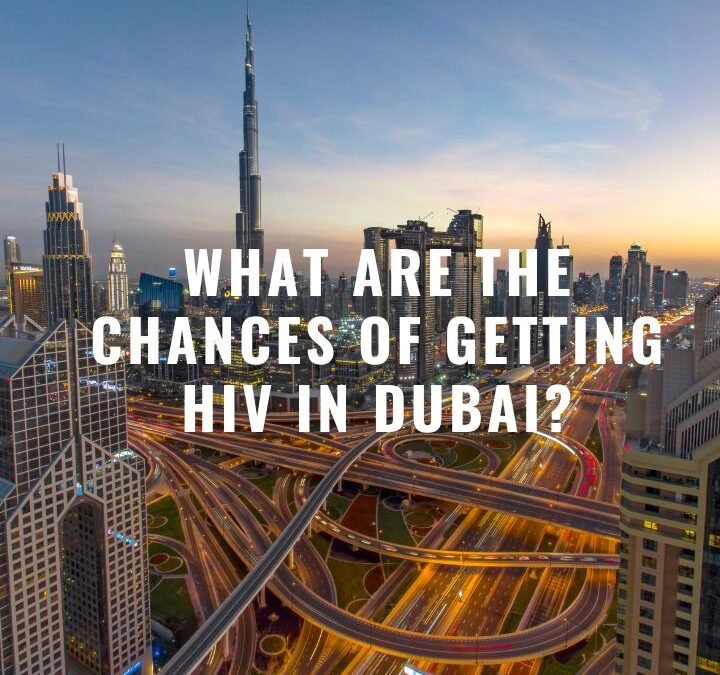In the vibrant city of Dubai, where modernity blends with tradition, questions about the prevalence of HIV/AIDS and associated risks are of paramount importance. Despite its status as a global hub for business and tourism, understanding the chances of acquiring HIV in Dubai requires a nuanced examination of local dynamics, regional trends, and societal factors. Drawing insights from recent studies, including those highlighting the challenges faced by female sex workers in the Middle East and the knowledge gaps among UAE youth, we explore the landscape of HIV/AIDS in Dubai and shed light on preventive measures and support systems available.
Demographic Insights: A Diverse Population
Dubai’s demographic landscape is characterized by a diverse population comprising expatriates from various cultural backgrounds. This diversity influences the prevalence and spread of HIV within the community. Recent studies, such as those conducted by epidemiologists at Weill Cornell Medicine–Qatar, highlight the challenges faced by vulnerable populations, including female sex workers and their clients, in accessing HIV services. Despite the global trend of rising infection rates among at-risk groups, Dubai’s healthcare infrastructure plays a crucial role in managing HIV/AIDS cases effectively.
Regional Context: Challenges and Opportunities
The Middle East and North Africa (MENA) region present unique challenges concerning HIV/AIDS, with conservative societal norms and stigmatization exacerbating the situation. Studies examining HIV prevalence among female sex workers and their clients in MENA countries reveal concerning trends, including a steady growth in infection levels since 2003. However, the data also underscore the urgent need for expanding HIV surveillance, monitoring systems, and treatment coverage across the region. Immediate measures, such as increasing HIV testing and treatment coverage and promoting condom use, are essential in containing emerging epidemics.
Knowledge Gaps and Misconceptions
Despite efforts to promote awareness and education, knowledge gaps persist among young adults in the UAE. Studies conducted among university students reveal misconceptions regarding HIV transmission and low overall knowledge scores. The persistence of negative attitudes towards people living with HIV underscores the importance of targeted education initiatives and stigma reduction efforts. The conservative nature of UAE society contributes to the stigma surrounding HIV/AIDS, highlighting the need for effective knowledge and education programs integrated into university and school curricula.
Governmental Policies and Initiatives
The government of Dubai takes proactive measures to address public health concerns, including HIV/AIDS. Stringent regulations are in place to safeguard public health and prevent the spread of infectious diseases. The Dubai Health Authority implements policies to ensure the availability of HIV testing, treatment, and prevention services.
Moreover, the government collaborates with international organizations, healthcare providers, and NGOs to enhance HIV/AIDS awareness, prevention, and support programs. These initiatives underscore Dubai’s commitment to promoting health equity and combating HIV/AIDS within the community.
Book Online: STD Test in Dubai
Understanding HIV Transmission and Prevention
In assessing the chances of acquiring HIV in Dubai, it is essential to understand the modes of transmission and adopt preventive measures. HIV can be transmitted through unprotected sexual intercourse, sharing contaminated needles, and perinatal transmission from mother to child.
Practicing safe sex, using condoms consistently, and limiting sexual partners can significantly reduce the risk of HIV transmission. Additionally, avoiding the sharing of needles or syringes, and opting for sterile equipment for medical procedures, further mitigates the risk of infection. Access to HIV testing, treatment, and support services is readily available in Dubai’s healthcare facilities, ensuring confidentiality and comprehensive care for individuals living with HIV/AIDS. Initiatives aimed at reducing stigma and promoting awareness, such as the training of ‘Peer Health Educators’ by UNICEF and the health ministry, represent positive steps towards creating a supportive environment for those affected by HIV/AIDS in Dubai.
Access to Testing and Treatment
Early detection plays a pivotal role in managing HIV/AIDS and preventing its spread. Individuals at risk of HIV infection or those exhibiting symptoms should undergo testing promptly. Confidential HIV testing services are available in Dubai, ensuring privacy and anonymity for individuals seeking screening.
In the event of a positive diagnosis, access to comprehensive care and treatment is crucial. Antiretroviral therapy (ART) is prescribed to suppress the virus, improve immune function, and enhance overall health outcomes. Regular medical follow-ups and adherence to treatment regimens are essential for managing HIV/AIDS effectively.
Read More: Types of STDs and Symptoms
Stigma Reduction and Support Services
Addressing stigma associated with HIV/AIDS is paramount in creating an inclusive and supportive environment for affected individuals. Discrimination and prejudice can exacerbate the psychosocial challenges faced by those living with HIV/AIDS, hindering access to healthcare and support services.
Dubai offers various support mechanisms, including counseling services, peer support groups, and educational initiatives, aimed at reducing stigma and providing holistic care. Additionally, legal protections are in place to safeguard the rights of individuals living with HIV/AIDS, ensuring equal access to healthcare and employment opportunities.
Towards a Healthier Future
Understanding the chances of acquiring HIV in Dubai requires a multifaceted approach, considering local dynamics, regional trends, and societal factors. While challenges exist, including knowledge gaps and stigma, Dubai’s robust healthcare infrastructure and proactive measures offer hope for a healthier future. By promoting awareness, expanding access to testing and treatment, and fostering supportive environments, Dubai can continue its efforts in preventing new HIV infections and supporting those affected by the disease. Through collaboration and education, the city can emerge as a model for HIV/AIDS prevention and care in the region.

